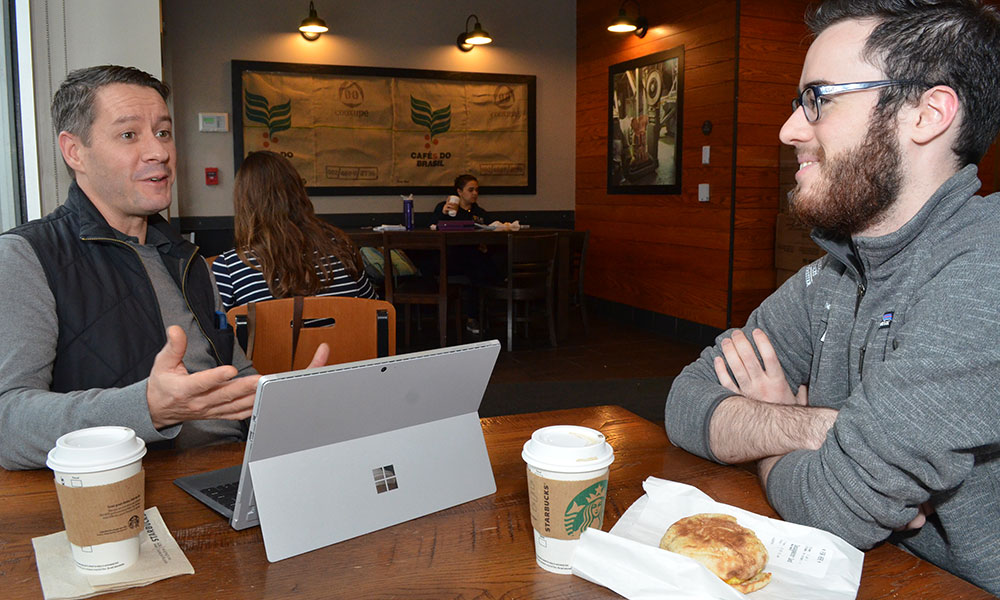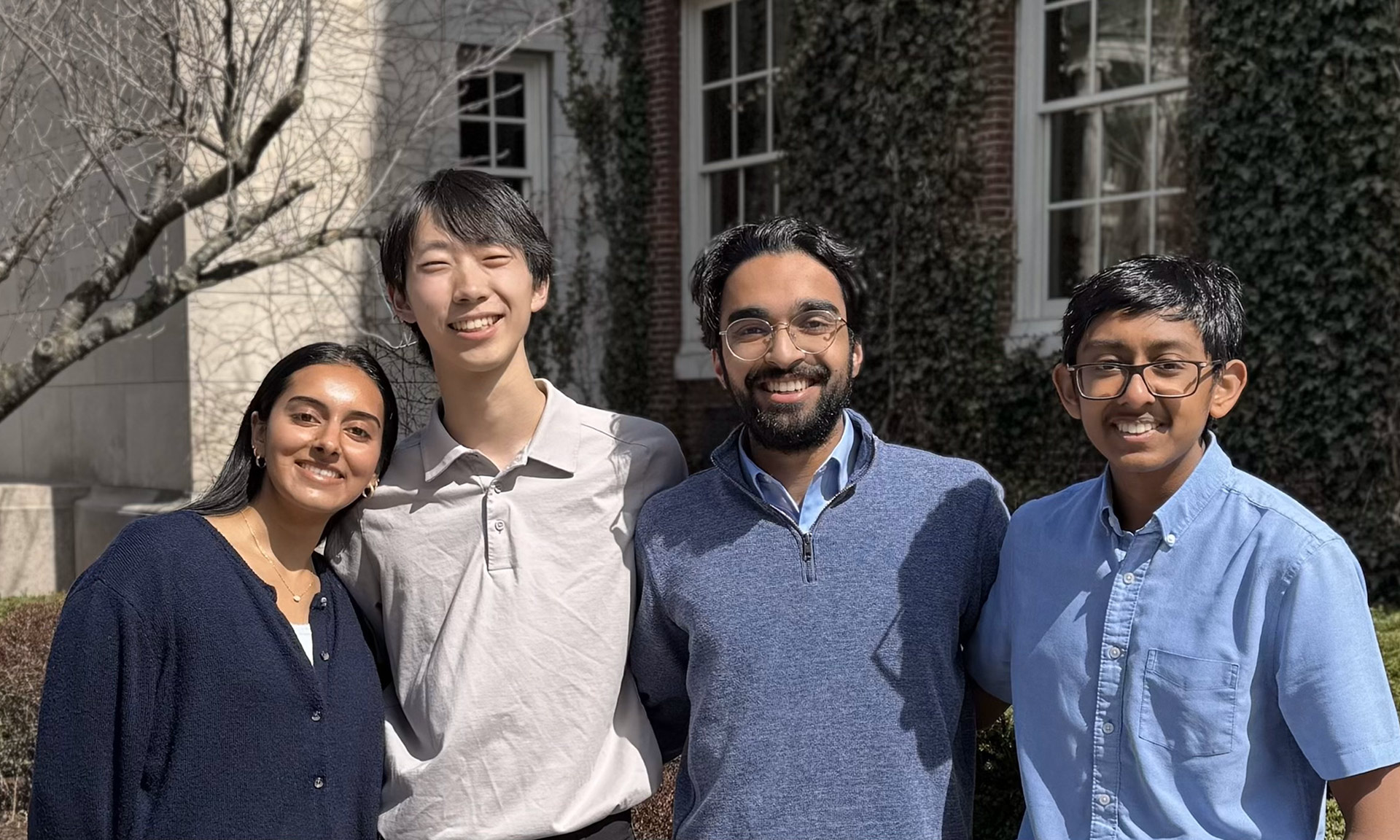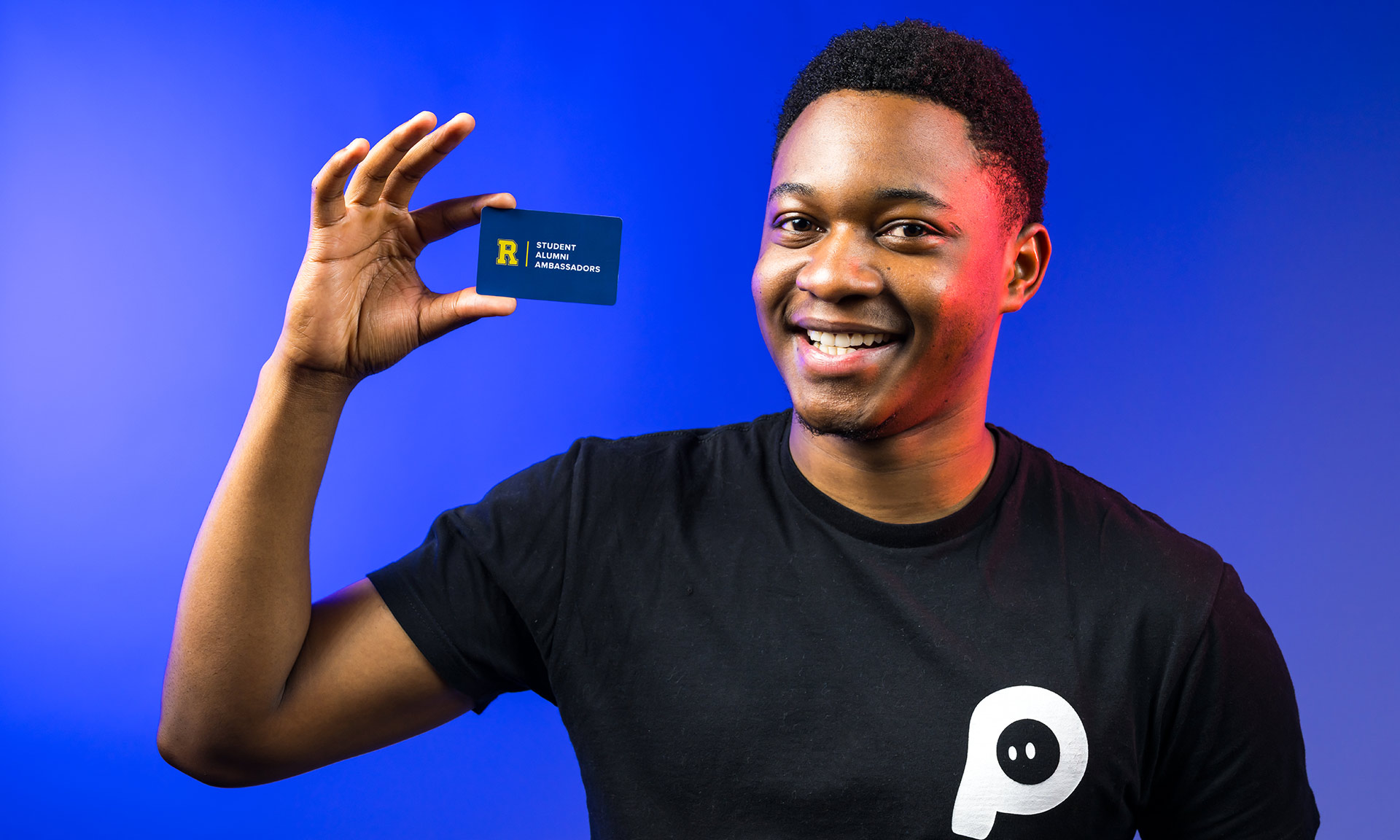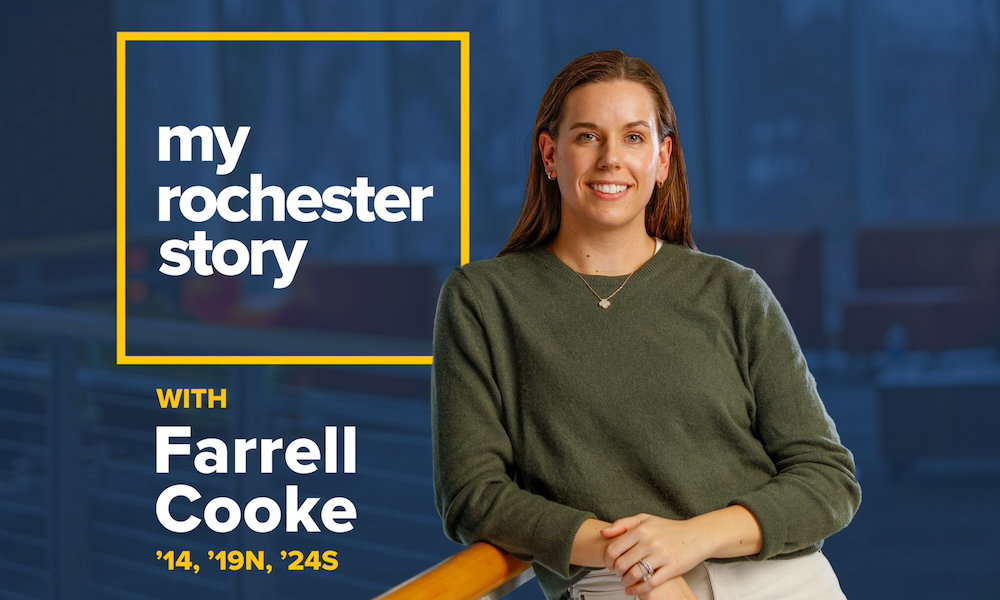Aaron Swerdlow-Freed ’15 says the insights he received as a student from a “real reader” have been critical to his career.
Lisa Bobich ’04 and Philip Breitfeld ’79M (MD), ’82M (Res) wish they could have benefited from a similar experience.
All three are now real readers themselves, part of a unique approach by the University of Rochester to give its students an edge in applying for internships and jobs.
Real readers are University alumni, parents, and friends who volunteer their time to give students “real world” feedback on the resumes, cover letters, LinkedIn profiles, and other materials they prepare for their portfolios as part of a 2-credit course called Communicating Your Professional Identity.
The course is required of all engineering undergraduates, and comparable courses are optional for students in other majors.
Input from real readers “is really important because it provides extra motivation for the students; it makes it real for them that when you go out into the job market, this is the kind of feedback you’ll be getting,” says Deborah Rossen-Knill, director of the University’s Writing, Speaking, and Argument Program. Program faculty and staff designed and implemented the course in collaboration with the Gwen M. Greene Center for Career Education and Connections.
Rob Clark, former dean of the Hajim School of Engineering & Applied Sciences and now the University’s provost, provided the impetus that led to the launch of the classes for engineering students in 2013. He had heard repeated comments from employers – many of them University alumni – that college graduates across the board, accustomed to communicating by text and other digital formats, often struggle to present themselves professionally when applying for internships and jobs.
Requiring the classes, he reasoned, would give Hajim students an advantage, especially if it included feedback from real readers.
A total of 142 real readers are working with 224 students in the fall 2018 semester, and 330 students are registered for the course in the spring.
‘I’m really able to help’
Swerdlow-Freed, now an enterprise account executive at Macedon Technologies in Herndon, Virginia, says his real reader – a solutions engineer – made a “very positive impression” on him.
Interested in becoming a real reader?
For more information about how you can participate as a real reader, contact: michelle.marks-hook@rochester.edu.
In the course of his studies, Swerdlow-Freed became interested in not only the technical skills involved in computer science, but also in learning how to communicate his work to a general audience. His real reader, he discovered, was doing exactly that in his job – working directly with prospective clients to help them understand the software they were buying, and how it worked.
“That was something l looked into very deeply because it really appealed to me,” Swerdlow-Freed says. And when his current position opened up, requiring both technical knowledge and ability to communicate with clients, “I was able to make a pretty strong business case to let me take it over rather than hiring someone new.”
He’s been a real reader for three semesters. “I make it a policy to push on the students lightly,” he says, “I’m never going to tell them, ‘hey, you should come to me and ask if I will be a reference,’ or ‘you should come to me and ask about your resume.’ But I’m always looking for the students who are willing to reach out and get everything that they can out of this program. And when they do that, I’m really able to help them.”
Helping students explore their purpose
Breitfeld is chief strategy and innovation officer at Champions Oncology, a company in Hackensack, New Jersey, that offers personalized cancer treatments for patients and assists pharmaceutical and biotechnology companies in translating research into clinical solutions.
Breitfeld says he likes to help the biology majors he mentors to focus on two key questions. The first is how they’ve gotten to where they are.
“Some students have a clearly identified purpose,” he says. “Some have not realized that they indeed are driven by a purpose they have not yet explicitly articulated to themselves.”
The second is how they communicate their story.
“The most successful and fulfilled technical and science-oriented professionals have a way of communicating that engages others,” Breitfeld says. “They bring people into their professional talents and interests, and they do so with stories that people can relate to.” Breitfeld thinks it’s great that students have a chance to learn these skills while they’re still at the University, rather than “on the job.”
“Students who have the real reader program experience are better prepared as they enter the first part of their career. The program offers practical advice on professional communication and provides a ready way for students to start to widen their professional network though the connection with their real reader.”
‘More than just resumes and cover letters’
Bobich went on to earn master’s and PhD degrees at Arizona State University after completing her BS in biomedical engineering at Rochester. She’s now a principal product engineer and sourcing engineering process coordinator for Medtronic in Tempe.
Five years ago, Laura Jones, now the lead instructor for Communicating Your Professional Identity, emailed her about the real reader program.
“I remember when I was trying to apply for internships and for jobs, and not being sure what to put in my resume or in my cover letter,” Bobich recalls. “The only person I could think of, to reach out to, was my father because he worked as an engineer.” But it can be awkward for students to rely on their parents for input, she adds. When Jones approached her with the idea for this program, it just totally resonated with me that this was exactly what I was hoping to find when I was a student.”
“And I’ve been hooked ever since.”
Bobich finds she rarely limits the initial informational interview to the recommended 30 minutes.
“This is about more than just resumes and cover letters,” she says. “A lot of the students ask me should they apply to grad school or apply for job? What’s the benefit of getting a higher degree? Should I try to work while I’m at school, or just focus on my course work? What kind of internship should I get? Does it matter if it’s an internship or a research position?
“These are important discussions to have.”




